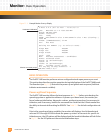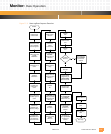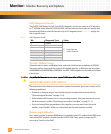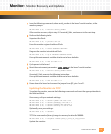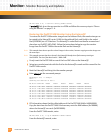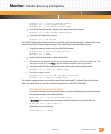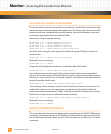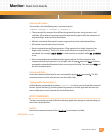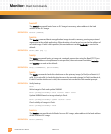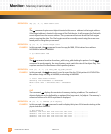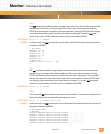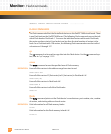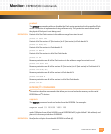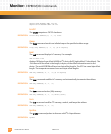
Monitor: Boot Commands
10006757-02 PmPPC7448 User’s Manual
11-9
Command Syntax
The monitor uses the following basic command syntax:
<Command> <argument 1> <argument 2> <argument 3>
• The command line accepts three different argument formats: string, numeric, and
symbolic. All command arguments must be separated by spaces with the exception of
argument flags, which are described below.
• Monitor commands that expect numeric arguments assume a hexadecimal base.
• All monitor commands are case sensitive.
• Some commands accept flag arguments. A flag argument is a single character that
begins with a period (.). There is no white space between an argument flag and a
command. For example, md.b 80000 is a valid monitor command, while md .b 80000
is not.
• Some commands may be abbreviated by typing only the first few characters that
uniquely identify the command. For example, you can type h instead of help. However,
commands cannot be abbreviated when accessing on-line help. You must type help and
the full command name.
Command Help
Access the monitor online help for each command by typing help <command>. The full
command name must be entered to access the online help.
Typographic Conventions
In the following command descriptions, Courier New font is used to show the command
format. Square brackets [] enclose optional arguments, and Italic type indicates that you
must substitute your own selection for the italicized text.
BOOT COMMANDS
The boot commands provide facilities for booting application programs and operating sys-
tems from various devices.
bootd
Execute the command stored in the “bootcmd” environment variable.
DEFINITION:
bootd




